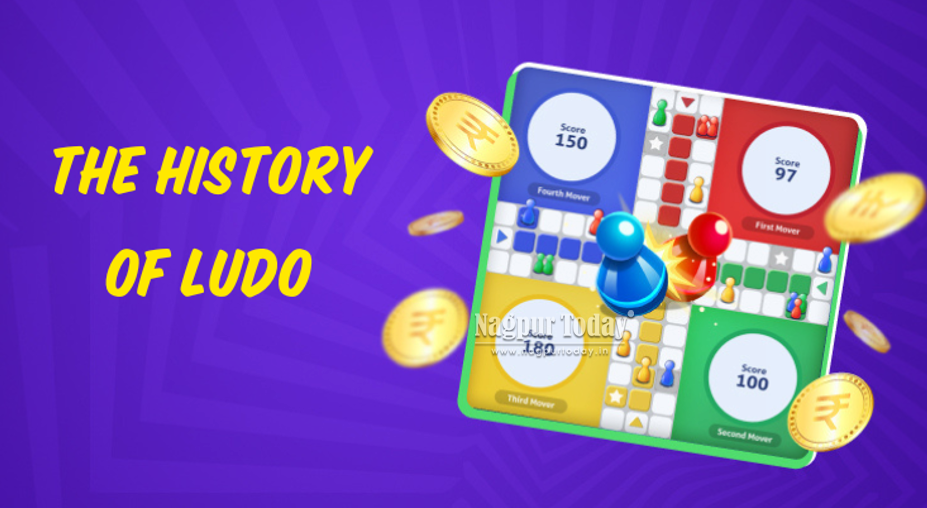Ludo, a game loved by millions around the world, has a rich history that dates back thousands of years. Originally known as Pachisi, it was played in ancient India and was often referred to as the “royal game.” The game’s simplicity and excitement made it a favourite among royalty, and it gradually spread across the globe, evolving into the version we know today. From being played on large wooden boards with cowrie shells to the modern-day plastic versions, Ludo’s journey has been nothing short of fascinating.
Zupee adds a fresh twist to this classic by offering a skill-based version of Ludo, where players compete against real opponents. With real money games under 10 minutes and RNG-certified fair play, Zupee provides a fun, competitive experience through unique formats like Ludo Supreme.
The Ancient Origins of Ludo
Ludo originated in ancient India, where it was known as Pachisi. Played as early as the 6th century, Pachisi was a game of strategy enjoyed by royalty, including Mughal Emperor Akbar, who had a life-sized version of the game in his court. The game was played on large outdoor boards with pieces moved based on cowrie shell throws, a precursor to dice.
Pachisi holds cultural significance, often appearing in Indian literature, including the Mahabharata. However, the exact nature of the game in the epic remains uncertain, and some scholars debate whether it directly influenced Pachisi.
The game was later simplified in the 19th century. In 1896, a British company created a version of Pachisi called “Ludo,” which used dice and a smaller board. This modernized version became popular worldwide and is the Ludo we recognize today, transitioning from its royal origins to a game enjoyed by people of all ages.
Ludo in the British Empire
While the game was already thriving in India, it got a makeover in 1896 when a British man named Alfred Collier patented a simplified version of Pachisi in England. He replaced cowrie shells with a cube-shaped die and added a dice cup for rolling. He called it Ludo, which comes from the Latin word “I play.”
Collier’s version of the game quickly became popular in England and later spread across Europe and other British colonies. Even the British Royal Navy adopted a version of it, known as “Uckers.”
So, while the official Ludo patent belongs to Collier, the heart and soul of the game remain very much Indian.
Ludo Becomes a Popular Household Game
After the British popularized the new format, Ludo gradually made its way into Indian homes, where it quickly became a favourite. By the mid-20th century, it had established itself as a staple board game for both children and adults. The game’s appeal was clear—it was simple to understand, quick to play, and could easily include everyone in the family.
The square board with its four colourful corners, the roll of the dice, and the thrill of cutting an opponent’s token became iconic elements in Indian households. Ludo wasn’t just a game; it became a source of fun and bonding, creating lasting memories. Many of us still recall childhood summers spent playing Ludo with siblings, cousins, and friends, creating moments of joy and friendly competition. Even today, Ludo continues to be a popular game, often passed down through generations, bringing families together for countless rounds of laughter and enjoyment.
Modern Variations and Digital Ludo
Ludo has come a long way from being a slow-paced board game played at home to a competitive, time-bound experience on mobile. With shorter formats and real-time matchups, digital Ludo now caters to players who prefer quick games that demand smart decisions. Platforms like Zupee have played a key role in this shift, offering unique versions such as Ludo Supreme, Ludo Turbo, and Ludo Supreme League. These formats remove the wait for a six and introduce point-based systems, making every move count. What sets them apart is their focus on skill—games are designed to be fair, fast, and strategy-driven. Players can choose between casual play and contests with real cash rewards, depending on their comfort. These modern takes on Ludo preserve the familiar feel of the original while adding a new layer of excitement that fits today’s fast-moving, mobile-first world.
Conclusion
From ancient palaces to modern smartphones, Ludo has truly stood the test of time. What started as a royal pastime has now become a household favourite and a digital sensation. And platforms like Zupee have played a big role in bringing this classic into the 21st century with fresh formats, fair gameplay, and real fun. So if you love playing Ludo and want to experience it in a whole new way, head to Zupee and get started today.















